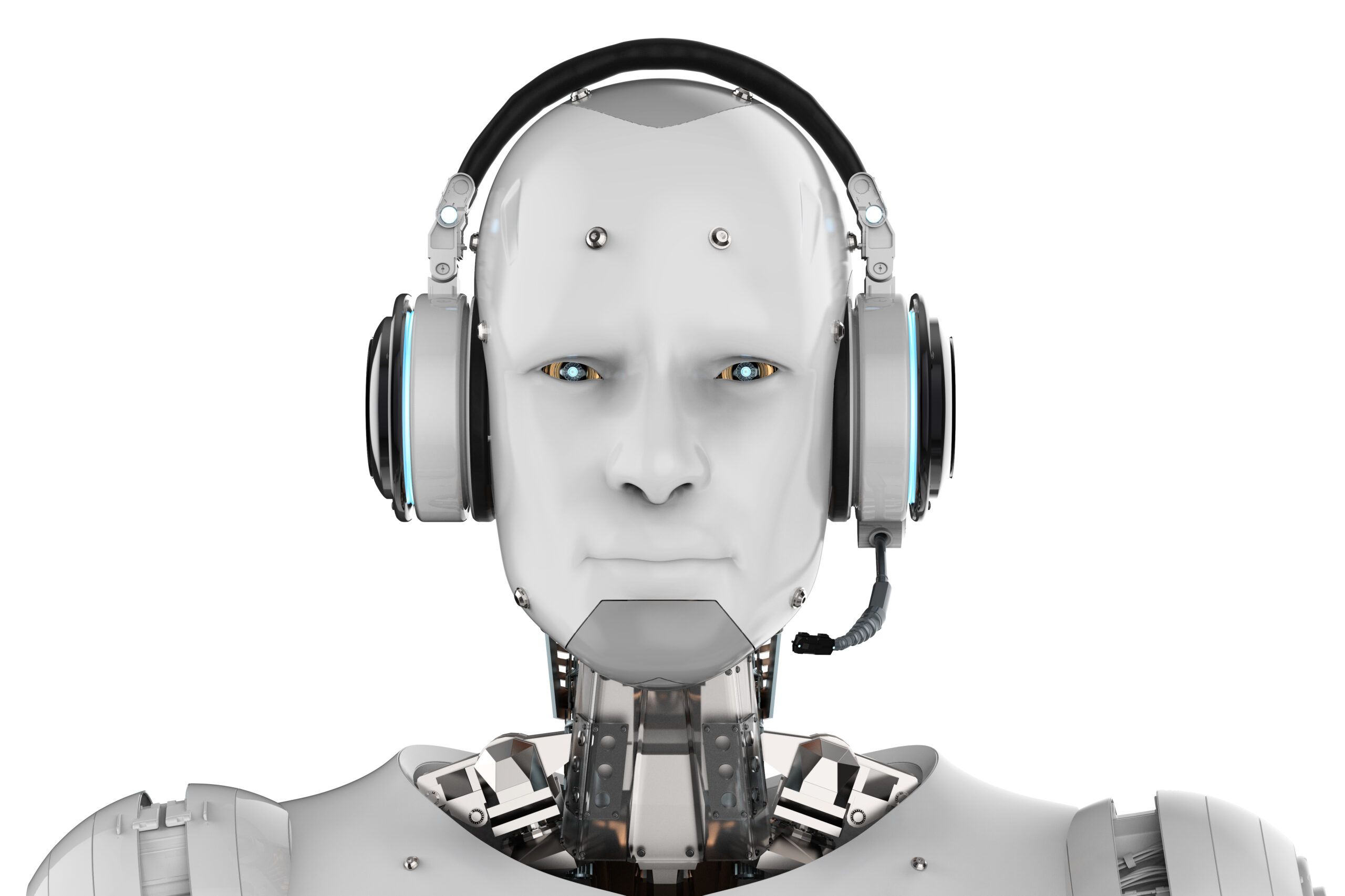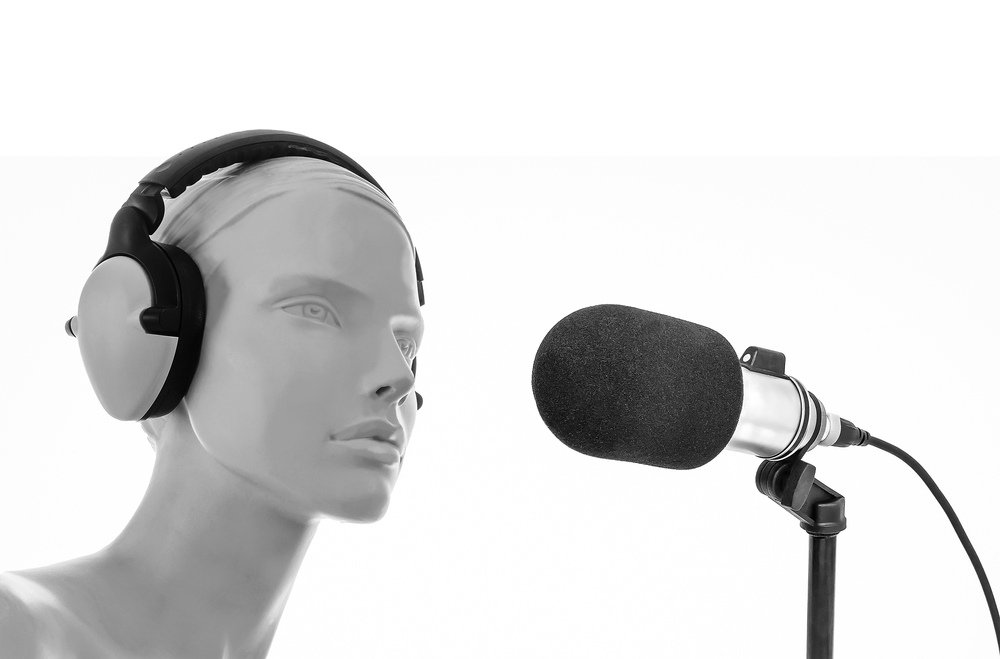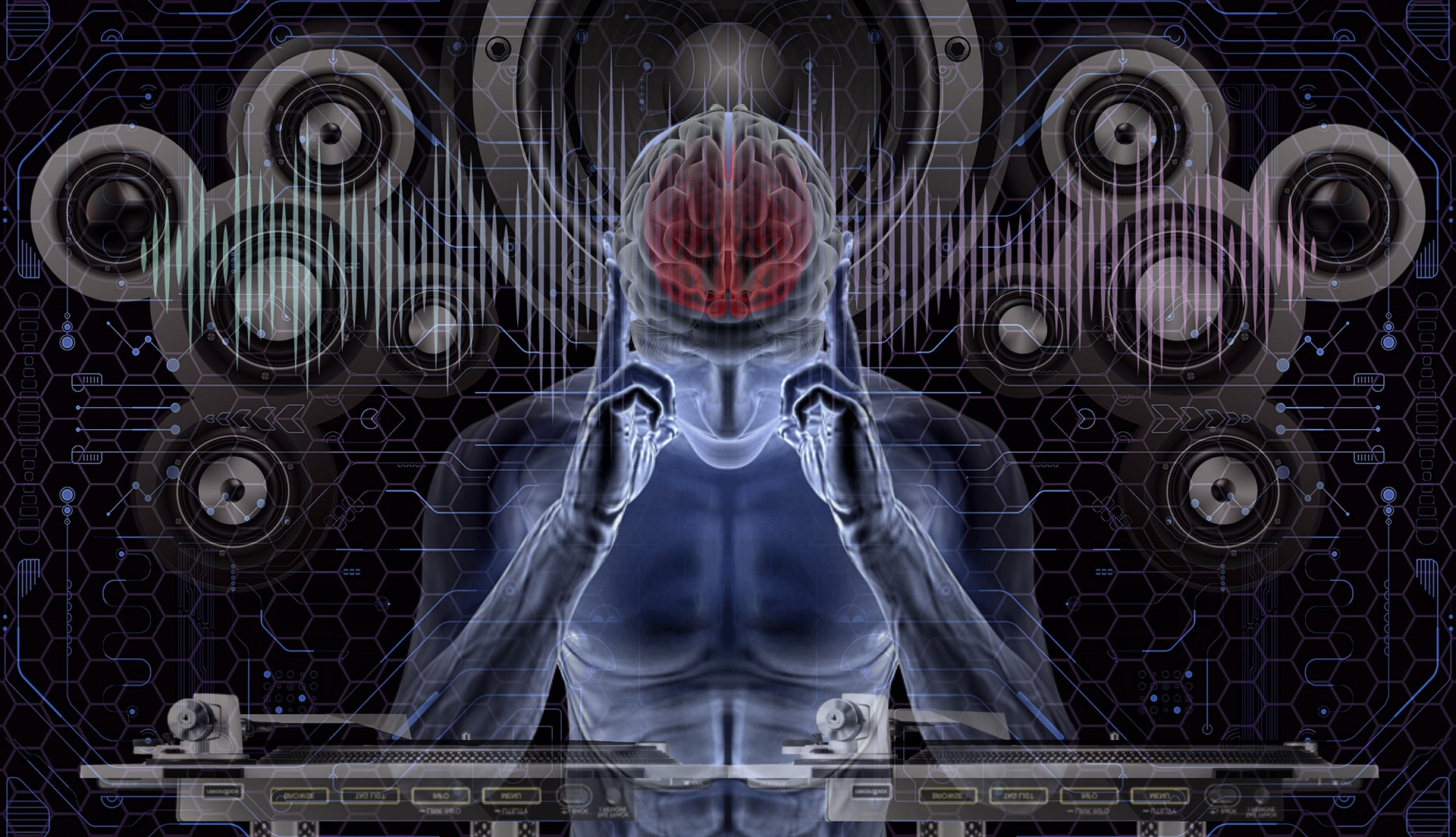
Two weeks. Two blog posts from Tom Langmyer.
If you didn’t read Tom’s first missive, it was a fresh look at the AM radio in the car mess through a new lens. As a person who’s been in radio leadership throughout most of his career – including runs at KMOX and WGN – Tom was well qualified to share some important views on the state of play in the dashboard. His post is still racking up impressive views, a week after it originally was published. You can read it here.
runs at KMOX and WGN – Tom was well qualified to share some important views on the state of play in the dashboard. His post is still racking up impressive views, a week after it originally was published. You can read it here.
Today, its A.I. – the other hot topic in the rapidly changing world of broadcast radio. In all my years of doing this, I have not seen another hot topic dominate conversations in the trades, as well as in conference rooms all over the county, and likely, around the globe.
We’re all trying to get our heads around this phenomenon. And we’re not alone. From Congress to Elon Musk to Bill Gates, we have an 8,000-pound digital gorilla in the room – and he’s moving.
Enjoy Tom’s post, which originally appeared as a comment. And as you did last time, please leave a comment below. – FJ
I really wish we could look at the state of radio today through yesterday’s lens – but that ship sailed away many years ago.
We need to start anew with a vision of building something different and BIG. Thirty years plus have passed since so many of those radio greats across the country left the air.
However, the kind of result achieved in those days is what we’re still after.
Even the names of those greats sadly don’t resonate with anyone under the age 50, which is so hard to believe, but it’s true.
Of course, if we could have today’s versions of those personalities, it would be terrific.
However, during that passage of time, the business was whittled down by a couple of things.
It was more attractive to suck localism out of stations, because this was the means of drastically reducing expenses – and it was the quick and easy way out. Today, perhaps the majority of music-based stations, literally run on autopilot – and that’s been the case for years.
These efficiencies created a talent “brain drain” that spans four decades. The best creative minds aren’t interested in doing dynamic, creative and impactful things for an industry that doesn’t want that – and also doesn’t want them.
 When I think about AI used in the right instances (and AI isn’t just about synthesized voices, but also about content gathering), I do believe it’s better than a tracked radio announcer’s 3-4 day old generic tracks being played on a station. Not local, not timely, not compelling nor interesting in the least. Add to that, a 12-hour-old rambling or rushed recorded weather forecast by a TV partner that’s still referencing the morning when it’s the afternoon – and NEVER gives current conditions.
When I think about AI used in the right instances (and AI isn’t just about synthesized voices, but also about content gathering), I do believe it’s better than a tracked radio announcer’s 3-4 day old generic tracks being played on a station. Not local, not timely, not compelling nor interesting in the least. Add to that, a 12-hour-old rambling or rushed recorded weather forecast by a TV partner that’s still referencing the morning when it’s the afternoon – and NEVER gives current conditions.
Compare that to AI that’s giving you concise information on a storm heading this way from the NWS, the final score of the your city’s professional sports team or a small town high school game, taking about a major accident on the freeway, etc.
I simply cannot come up with a name of ANY voice tracker that’s a true IMPACT PLAYER or a noteworthy tracked “authentic human personality.” Think one that’s really impactful, memorable or “important,” let alone well-known – let alone being a destination for appointment listening. Are they even visible the community? So much for the vaunted human.
The sad part is to hear the generic trackers speak with excitement at the end of their “radio factory shift.” And doing so along with all the authenticity of having a “radio name” created by using two first names!
“I’m Jimmy Richards and I’m outta here for the weekend, but don’t worry because Amber Roberts is gonna take you through the afternoon!!”
That remnant of vintage radio DJ patter is like the radio cockroach that never goes away, along with those 1960s DJ names.
In actuality, Jimmy Jones said absolutely nothing of interest during his “shift.” No one knows him or cares about him. And it’s better that they don’t, because he’s also doing the same shift on the other rack-mounted radio station in the building, using another fake radio name. He’s had no relevant nor time-sensitive information or anything else that would rise the experience beyond the taste of a “nothing burger” while the tracks of that “non-content” is spread across a six-hour “shift.”
No one is worried about his being “outta here” any more than they are excited for the next human, Amber Roberts, to make us laugh hysterically, cry, cheer, learn, be informed or kept safe with her tracks – because she won’t either. Plus she’s imported from yet another city, 700 miles away. And she’s never even been to your market, let alone could she even find it on a map.
her tracks – because she won’t either. Plus she’s imported from yet another city, 700 miles away. And she’s never even been to your market, let alone could she even find it on a map.
However, those faithful listeners have been told “Don’t go away” and to listen for 3 more hours, because she teased her promise to run down the “list of the Top-10 TikTok videos from last week, sometime after six.”
And after her “shift” is over, there won’t be anyone even providing that kind of prattle for the next 12 hours, from early that evening until the next day. During that time, the station will be spitting out tunes, punctuated by some Star Wars sound effects (credit: Lee Abrams with that analogy), while the station imaging voice says how the station “plays the best and most music.”
When you look at that for what it is, the use of AI is actually a huge improvement. No?
Tracy Gilliam, from Futuri, has on several occasions, taken broadcasters through demonstrations of the technology – and all the things it does to get important and timely content on the air.
I was blown away by how good it sounded. Honestly I couldn’t tell the difference. Now, I’m not going to say that great personality was oozing from this “thing,” but it was WAY better than most of the radio I hear.
I planned to be quite cynical – but I was WRONG.
This is coming from someone who is advocating for localism in radio and for personalities and a new generation of stars.
Why would I say this?
Radio companies are so challenged (based on the industry being driven by the mega consolidators’ models), by debt, predatory pricing, heavy commercial loads, lack of local content and little human connection – a tone that was by the industry “leaders.”
If we could snap our fingers and have brilliant live and local radio stars on the air tomorrow, by all means, let’s do it!!!
However, reality sets in.
- The economics of the business, based on greedy decisions made starting in 1996, doesn’t allow for it, at least not YET.
- Radio is a spoke on the wheel, along with other platforms, that orbit content. Not the other way around.
- Today’s local stars have to be multi-platform threats. It’s arguably harder to do that than it was back in the day to crank out 18 seconds of witty banter, standard DJ patter from muscle memory, and maybe a one-liner over the lip of a Neil Diamond record – and nailing the post.
Either way, when I think of Frank Benny’s radio companionship, his double-entendres, humor, timely and important content, delivered by that wonderful voice – or Shane’s haunting and thought-provoking theater of the mind, I admittedly wish we had that today. I also wish today’s generation could be inspired by hearing them, so they could create the 2023 version of that magic.
And that doesn’t even include Shane’s “Bandit, The Wonder Dog” doing tricks with a Frisbee in front of hundreds of fans at a remote! Way better than the shade canopy, prize wheel and the jock eating corn on the cob slathered in butter in front of a mobile phone store.
I will leave you with two things.
 I was in Pittsburgh a while back for some meetings. I stuck around afterward to check out some of the old haunts. Then I drove past where the J&L steel mill once stood. They aren’t going to open up again anytime soon and give jobs to the steel workers. It was over in 1984.
I was in Pittsburgh a while back for some meetings. I stuck around afterward to check out some of the old haunts. Then I drove past where the J&L steel mill once stood. They aren’t going to open up again anytime soon and give jobs to the steel workers. It was over in 1984.
Then I looked across Monongahela River and saw the UPMC logo on what used to be known as the US Steel Building.
It all made sense.
The most sobering moment this week came from a broadcasting friend in the Pacific Northwest, who told me when Gordon Lightfoot died, “a note from Corporate came down to make sure all Gordon Lightfoot songs were pulled immediately.”
Why?
Because all of the voice-tracking was already done and was in the system the day before he died. “If we were to play a Gordon Lightfoot song without anything being said, it would be strange, so just take them out.” There’s the mentality.
And that is another reason why AI can help to cover the times when the best we can do is three-day-old milquetoast tracks from a real human that has less personality than an AI voice!
It’s a start, and when radio, as part of the wheel of content platforms, grows as part of an integrated local media play, we can train and grow multi-platform stars in each local market for the future – and be the NEW local social media!
We can do this!
- What’s On Your Bucket List? - March 31, 2025
- “Honey, would you please talk to Alexa?” - March 28, 2025
- On The Radio, It’s Always 5 O’Clock Somewhere - March 27, 2025





So many stations continue to behave as if they’re still the only option for ears. Oblivious to the fact that listening is fractured. We need to quit paying attention to the trade stories that “90+% of the population hears Radio each week”. At the same time, few people actually “hear” it. Adding insult to injury on the AM in cars issue this week, I noticed while going through the “Build your own” feature on BMW’s website, there’s no longer any mention of AM or FM radio as included equipment on new models. You can see how many speakers, the power of the Amp, Apple CarPlay, Android Auto, SiriusXM is free for one year, etc. but no longer any mention of a Radio as we used to know it. It IS still there…but I think the elimination of AM/FM in the literature is a strategic omission on their part.
I will give this an 8.5 on the Richter Scale. I spent many years on the programming, management and on-air side of Radio. Now, I’m just the “local” meteorologist. (Although my company does update the weather every daypart and we are actual humans. We even go live when there are tornado warnings.) This article should shake all of us to the core, and force us to do some things many want to avoid: Soul Searching, and Being Honest about our product. Here in Denver, listening to most radio stations is disheartening, to say the least. What I’m hearing follows what Tom says. The man is spot-on about where we are. Thanks for passing this on. I hope it will wake a few folks up and get us back to full potential. Radio is unique. Always has been. What we’re lacking now is spirit.
You have so hit the nail on the head, Steve. I think radio is way overdue for both some “soul searching” and that “being honest” conversation. When AI is such an improvement over what radio has been doing for so many years now, it doesn’t make you wonder why the industry is struggling, it makes you wonder how its hung in there even as long as it has. Tom concludes his post optimistically, saying “We can do this!” The question is, will we?
Tom, you nailed it. Mic drop time!
I sit up here in my home office and listen to a different station around the country every day and Tom speaks the truth. We need to NOT be afraid of A.I. and use it to make us better.
Hope you enjoy your “hump day – Wednesday”.
I love your thoughts, enthusiasm and optimism, Tom. I could only wish the industry was filled with countless thousands more like you. But the more I read your post, the more depressed I got. Even I wouldn’t want to listen to Jimmy Richards or Amber Roberts–and I’ve loved radio from as early as I can remember. If Jimmy and Amber are the best radio can do, bring on the AI. That I’d tune in for. I’d still prefer real, live, breathing Jimmy’s and Amber’s (I just can’t fathom a group of AI voices doing a fun, compelling, can’t miss, talk-about-at-work-that-day morning show), but if that’s not going to happen, then at least put Alan Ingram (A.I.) behind the mic.
Tom,
The problem with today’s radio is the email about dropping the Lightfoot records. Instead, why not have the PD get a hold of the person doing the tracking, send a little suggested script about Lightfoot’s passing, and then rerecord the V/O? I can’t imagine any station having more than 3, maybe 4, of Gordon’s songs in rotation in 2023. What’s that going to cost? An hour of the talent’s time and another hour to change the tracks, At best a hundred bucks, probably less than half that number. Cheap and waaay better than cruising along for a couple of days without acknowledging Lightfoot’s passing. I hate to be an old guy, but, but when I was a kid, the talent would be calling the station offering to do a Gordon Lightfoot Special…I’m going out and yell at the clouds, Hell, I can’t even do that, the sky is blue and clear. I’ll just shake my fist instead.
Had a conversation today with another Buffalonian -Nick Seneca – whose wisdom knows no bounds. He referenced how the “stars” of the radio were more like companions to the listener. Gary Owens. Charlie Tuna. Dan Neaverth. Joey Reynolds. Chuck Buell. Dan Ingram. Tom mentions Frank Benny. “Shane”. John Otto. Jeff Kaye. Clint Buehlman. Jack Palvino. Ed Meath. Jack Slattery and George Haefner. O’Brien and Garry. Jack Bogut. Jim Scott. Nick Nickson. Jerry Thomas. Rich King. Gary Burbank. All whose radio “shows” were destinations to savor and smile at on the radio. Oh, there were many more. Radio used to be our “companion” -and today it’s the (insert imaging voice name) with an occasional appearance by some local (or imported) voice. Artificial Intelligence can be a great tool-to advance the HUMANITY of a given service. When Tom says it would be better to have a computer generated voice on the air, he’s missing one of the beautiful and waning qualities of radio. The human voice. Radio can cultivate humans to interact with AI to get the information and material they need to have a great show. Imagine if Bill Drake or Paul Drew’s tactics were inserted into AI (and they may be)…well we might see the return of “The Big Kahuna” or a 2023 version of “The History Of Rock And Roll”- with Taylor Swift and The Weeknd and Kid Rock..well you know. When we started with Prophet Systems back in the 90s Randy Michaels told me that “automation” was to be used as a tool, not a replacement for humans. After decades of jockeying vinyl, tapes, carts and CDs, we were able to glance at what was coming up-and work accordingly to make it sizzle. NexGen, Zetta, Audiovault, Enco-they’re all forms of Artificial Intelligence, albeit crude. Selector. Music Master. You name it –all of today’s computer programs use a form of what has evolved into Artificial Intelligence. Tom’s business sense says he can have a “voice” on his station(s)-but deep down inside, I’m sure his programming sense needs a human to deliver and embellish what AI can create. Curated audio has been around since the first song was played on the radio. It can thrive and survive if we utilize all of the tools available and filter it all through real humans. The big radio operators (for as long as they exist) have to realize this.
Wow. It didn’t take long for someone to pop up and say, “you know AI can’t be any worse than what we have now!”. The next article will be “AI station’s ratings are X% better than human ratings” Followed by, “XX station owner using dead/fired jock(s) voice on WXXX – company claims it was in the ‘fine print’ of contract”. I do applaud Tom for trying to silence the boomers up front by saying everything you think radio should be is now 30-40-50 years ago. It’s painful to think/say but let AM die (be removed from cars). Put all effort into what’s left of FM. No one under the age of 30-40-50? Listens now. Figure out how to cultivate new listeners and be cost effective and save what you can. I almost feel like radio is a geriatric with diabetes who smokes and doesn’t take care of himself and we’re trying to save extremities at this point.
Hahaha your last line👏🏽👏🏽👏🏽
AI presenters may sound like a fantastic bargain basement alternative to human dJ’s (after all, who really wants to pay anyone?) but facts from AI companies emphatically say otherwise. I’m an AI consultant and researcher and I’d strongly suggest to anyone considering investing in AI radio “personalities” to get the facts before committing. A must read is Microsoft’s GPT-4 Technical Report (https://paperswithcode.com/paper/gpt-4-technical-report-1) which pulls no punches about the limitations (Section 5) & risks (Section 6) of GPT where “high stakes uses” are involved. Quote: “Great care should be taken when using language model outputs, particularly in high-stakes contexts, with the exact protocol
(such as human review, grounding with additional context, or avoiding high-stakes uses altogether) matching the needs of specific applications.” Microsoft & GPT parent company OpenAI go on to itemize those risks including that GPT “is not fully reliable (it “hallucinates” facts and makes reasoning errors),” “lacks knowledge of events that have occurred after the vast majority of its pre-training
data cuts off in September 2021 , and does not learn from its experience,” does not take “care to double-check work when it’s likely to make a mistake,” and poses additional risks such as “generating harmful advice,” and biased speech including hate speech, etc.
The report concludes by stating “GPT-4 and successor models have the potential to significantly influence society in both beneficial and harmful ways.”
As monotonous and dull as human cookie cutter presenters may be- probably due more to the personality dulling limitations imposed upon their performance by restrictive digital formatting than lack of talent, I think you’d have to agree that given the facts, the alternative of having AI “talent” take their place as the voice of stations would be a misconstrued and potentially costly mistake.
Andrew, your warning is appreciated. Now, will anyone pay attention?